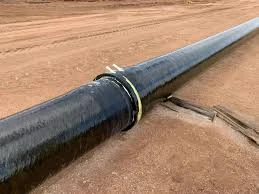
-
 Afrikaans
Afrikaans -
 Albanian
Albanian -
 Amharic
Amharic -
 Arabic
Arabic -
 Armenian
Armenian -
 Azerbaijani
Azerbaijani -
 Basque
Basque -
 Belarusian
Belarusian -
 Bengali
Bengali -
 Bosnian
Bosnian -
 Bulgarian
Bulgarian -
 Catalan
Catalan -
 Cebuano
Cebuano -
 China
China -
 China (Taiwan)
China (Taiwan) -
 Corsican
Corsican -
 Croatian
Croatian -
 Czech
Czech -
 Danish
Danish -
 Dutch
Dutch -
 English
English -
 Esperanto
Esperanto -
 Estonian
Estonian -
 Finnish
Finnish -
 French
French -
 Frisian
Frisian -
 Galician
Galician -
 Georgian
Georgian -
 German
German -
 Greek
Greek -
 Gujarati
Gujarati -
 Haitian Creole
Haitian Creole -
 hausa
hausa -
 hawaiian
hawaiian -
 Hebrew
Hebrew -
 Hindi
Hindi -
 Miao
Miao -
 Hungarian
Hungarian -
 Icelandic
Icelandic -
 igbo
igbo -
 Indonesian
Indonesian -
 irish
irish -
 Italian
Italian -
 Japanese
Japanese -
 Javanese
Javanese -
 Kannada
Kannada -
 kazakh
kazakh -
 Khmer
Khmer -
 Rwandese
Rwandese -
 Korean
Korean -
 Kurdish
Kurdish -
 Kyrgyz
Kyrgyz -
 Lao
Lao -
 Latin
Latin -
 Latvian
Latvian -
 Lithuanian
Lithuanian -
 Luxembourgish
Luxembourgish -
 Macedonian
Macedonian -
 Malgashi
Malgashi -
 Malay
Malay -
 Malayalam
Malayalam -
 Maltese
Maltese -
 Maori
Maori -
 Marathi
Marathi -
 Mongolian
Mongolian -
 Myanmar
Myanmar -
 Nepali
Nepali -
 Norwegian
Norwegian -
 Norwegian
Norwegian -
 Occitan
Occitan -
 Pashto
Pashto -
 Persian
Persian -
 Polish
Polish -
 Portuguese
Portuguese -
 Punjabi
Punjabi -
 Romanian
Romanian -
 Russian
Russian -
 Samoan
Samoan -
 Scottish Gaelic
Scottish Gaelic -
 Serbian
Serbian -
 Sesotho
Sesotho -
 Shona
Shona -
 Sindhi
Sindhi -
 Sinhala
Sinhala -
 Slovak
Slovak -
 Slovenian
Slovenian -
 Somali
Somali -
 Spanish
Spanish -
 Sundanese
Sundanese -
 Swahili
Swahili -
 Swedish
Swedish -
 Tagalog
Tagalog -
 Tajik
Tajik -
 Tamil
Tamil -
 Tatar
Tatar -
 Telugu
Telugu -
 Thai
Thai -
 Turkish
Turkish -
 Turkmen
Turkmen -
 Ukrainian
Ukrainian -
 Urdu
Urdu -
 Uighur
Uighur -
 Uzbek
Uzbek -
 Vietnamese
Vietnamese -
 Welsh
Welsh -
 Bantu
Bantu -
 Yiddish
Yiddish -
 Yoruba
Yoruba -
 Zulu
Zulu
grp vessel
The Importance of GRP Vessel Technology in Modern Industry
In an era where seamless efficiency and superior durability are paramount, the significance of Glass Reinforced Plastic (GRP) vessels has risen dramatically across various industries. GRP vessels, also referred to as fiberglass vessels, are recognized for their remarkable strength-to-weight ratio, corrosion resistance, and versatility. This makes them an ideal choice for applications ranging from chemical storage to water treatment and even marine applications.
Unmatched Durability and Corrosion Resistance
One of the standout features of GRP vessels is their exceptional durability. Unlike traditional materials such as carbon steel or concrete, GRP does not rust or corrode, especially when subjected to harsh chemicals and varying environmental conditions. This property greatly enhances the lifespan of the vessels, allowing industries to save on maintenance costs and reduce downtime. Additionally, GRP vessels can withstand extreme temperatures, making them suitable for a range of applications, including those that involve hot liquids or gases.
Lightweight Yet Strong
The lightweight nature of GRP vessels is another significant advantage. This characteristic facilitates easier installation and transportation, reducing overall operational costs. In industries such as marine and offshore applications, lower weight contributes to fuel efficiency and better performance. Despite their lighter structure, GRP vessels maintain a robust strength, capable of withstanding high pressure and impact, which is critical in many industrial processes.
grp vessel

Versatility Across Industries
GRP vessels are utilized in a vast array of industries, including water treatment, chemical processing, and food and beverage production. In the chemical industry, their resistance to aggressive substances makes them preferable for storing hazardous materials, contributing to enhanced safety and compliance with regulations. In the realm of water treatment, GRP vessels are commonly used for storing and treating water due to their non-reactive properties, which help maintain water quality. Furthermore, in the food and beverage sector, it is essential that materials used are safe and non-reactive, making GRP an ideal choice.
Sustainability and Environmental Impact
As industries worldwide increasingly focus on sustainability, the use of GRP vessels aligns well with these goals. The manufacturing process of GRP can be less environmentally taxing compared to metals or concrete, and the longevity of these vessels ensures that they do not contribute to pollution through rust or degradation. Moreover, innovations in recycling and reuse of GRP materials are paving the way for even more sustainable solutions in the future.
Conclusion
In summary, GRP vessels embody the intersection of durability, efficiency, and sustainability in modern industry. Their corrosion resistance, lightweight nature, and versatility make them an invaluable asset across a multitude of sectors. As technology advances and industries evolve, the role of GRP vessels is likely to expand, solidifying their place as a cornerstone in the infrastructure of critical industries. Understanding and embracing the benefits of GRP technology will undoubtedly lead to more efficient and environmentally friendly operations in the years to come.
Latest news
-
Exploring the Benefits of Top Hammer Drifter Rods for Enhanced Drilling PerformanceNewsJun.10,2025
-
High-Precision Fiberglass Winding Machine for GRP/FRP Pipe Production – Reliable & Efficient SolutionsNewsJun.10,2025
-
FRP Pipes & Fittings for Shipbuilding - Corrosion-Resistant & LightweightNewsJun.09,2025
-
Premium FRP Flooring Solutions Durable & Slip-ResistantNewsJun.09,2025
-
Premium Fiberglass Rectangular Tanks Durable & Lightweight SolutionNewsJun.09,2025
-
Tapered Drill String Design Guide Durable Performance & UsesNewsJun.09,2025









